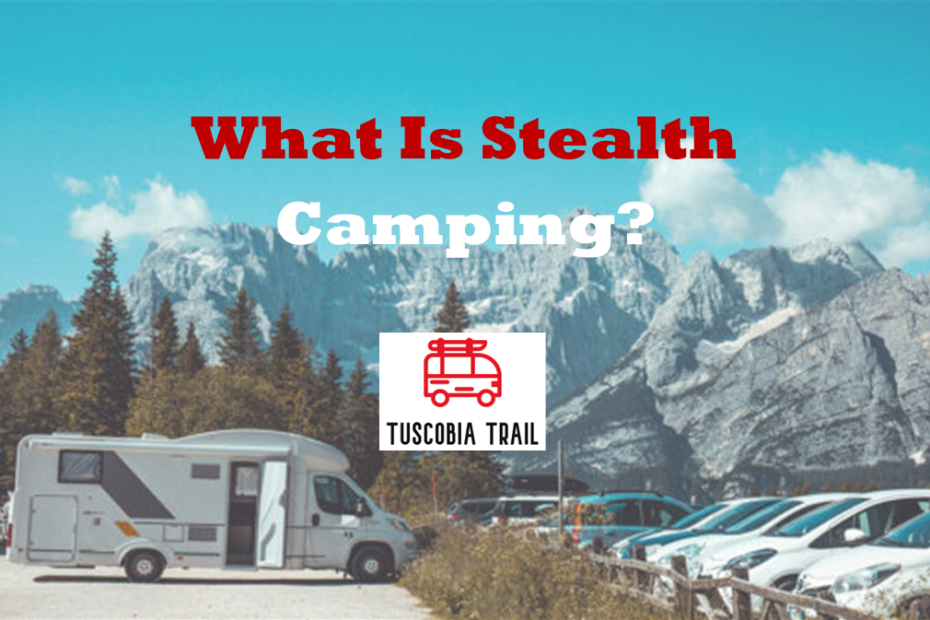Stealth camping, also known as wild camping or guerrilla camping, is the practice of camping in areas not officially designated for overnight stays. What is it and when can you do it?
Whether you live in an RV or have a campervan for van life, the unconventional approach of camping involves parking discreetly to avoid detection, often in remote or urban locations.
It might be to avoid the costs of campsites, wanting to live off-grid or just to find a handy park-up to be near a place you are needing to attend.
Why People Choose Stealth Camping
There are several reasons why adventurers opt for stealth camping, the main one being that it is typically free, allowing travelers to save money on accommodation costs.
It offers flexibility in choosing camping locations without the need for reservations or dealing with crowded campgrounds.
Stealth camping also provides a unique thrill and opportunity for exploration that traditional campsites can’t match, because you could camp in the wilderness or anonymously in a city.
How To Stealth Camp Successfully
To ensure a successful stealth camping experience, you need to be relatively anonymous and avoid detection that you are living in your van.
Choose the right vehicle for urban stealth camping, and opt for inconspicuous vehicles like camper vans or small RVs that blend in with surroundings.
Avoid drawing attention to yourself by minimizing noise, light, and visible activity, especially in urban areas when you can keep a low profile.
Know your surroundings and research local laws and regulations. Be aware of potential safety concerns in your chosen location so you are prepared for anything that might crop up.
Invest in portable power stations or solar panels to meet your electrical requirements without relying on external power sources. You won’t be able to use a generator when camping.
The most important thing about stealth style is to leave no trace. Live many van lifers, follow leave-no-trace principles to minimize your impact on the environment and avoid detection.
Finding Stealth Camping Spots
Research potential locations by using camping apps and websites. Apps like iOverlander and Park4Night allow users to share information about free camping spots.
National forests, Bureau of Land Management (BLM) areas, and other public lands often allow dispersed camping and are options.
Look for neighborhoods with street parking that’s free overnight, while you can also consider commercial parking lots. Some big box stores, hotels and 24-hour businesses may allow overnight parking.
In rural settings, look for spots hidden by trees or terrain, but only camp on public land or with explicit permission from landowners.
If an area feels unsafe, move on to another location and avoid staying in one spot for multiple nights to reduce the chance of detection.
We have found it is best to always have alternative spots in mind in case your first choice doesn’t work out. This strategy has got us out of trouble on several occasions!
Is Stealth Camping Legal?
While it can be an exciting way to experience the outdoors, it’s important to consider legal and safety aspects.
Stealth camping may be illegal in some areas, so research local laws and regulations before attempting it and see which states are best for living in an RV.
Choose locations carefully, prioritizing personal safety and avoiding areas with high crime rates or potential natural hazards.
Also be mindful of private property and avoid trespassing on land where you shouldn’t be. When possible, seek permission from landowners.
FAQs
Is stealth camping legal?
The legality varies depending on location. In some areas, it may be permitted, while in others, it could be illegal or fall into a gray area. Always research local laws and regulations before attempting stealth camping.
What equipment do I need for stealth camping?
Essential gear includes a low-profile tent or bivy sack, sleeping bag, water, food, and a way to manage waste. For urban stealth camping, a suitable vehicle like a camper van may be necessary.
How can I find good stealth camping locations?
Look for secluded areas away from populated zones, such as forests, public lands, or quiet urban spots. Use satellite imagery and maps to scout potential locations, and always have a backup plan.
What should I do if I’m discovered while stealth camping?
If confronted, remain calm and respectful. Explain your situation, apologize if necessary, and be prepared to leave immediately if asked. Always prioritize your safety and comply with authorities.
